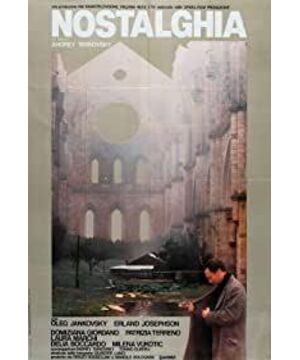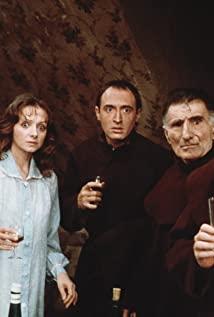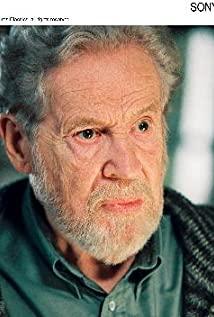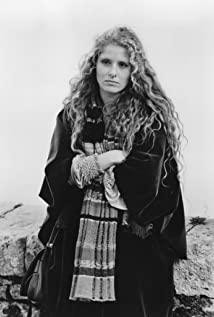"Nostalgia" is the successor of "Ivan's Childhood" (1962), "Andrei Rublev" (1966), "Solar System" by the famous Soviet film director Andrei Tarkovsky (1932-1986). (1972), Mirror (1975) and Stalker (1980). Although the number of his works is not many, each of them is quite distinctive, which not only caused discussion and controversy in the Soviet Union, but also attracted the attention of the international film industry, and won awards at some film festivals. The film was shot in Italy and won the Best Artistic Creation Award together with French director Bresson's "Money" at the 1983 Cannes International Film Festival. However, this film, like some of his past works, was neither understood nor recognized by people in the Soviet Union, and was criticized by relevant parties. Therefore, in 1984, he declared "self-exile" and was filmed in Sweden as "Sacrifice". " (1986) and died there shortly after.
According to some critics, the general inner idea of Tarkovsky's creation is "the eschatological idea of saving mankind and man", and all 7 of his films constitute a series that echo each other, the general theme of which is It is "a matter of personal responsibility to the world". But because his films are full of "mysteries and weirdness", people are also difficult to read.
As far as the specific film "Nostalgia" is concerned, as in "Mirror", we can find that Tarkovsky once again shows nostalgia for his hometown. It is no accident that the family described in the dream fragment in Nostalgia fits his family very well. Some critics believe that he dedicated the film to the memory of his mother, and quoted a passage from his father's poems (his father Alshinny Alexander Tarkovsky was a famous Soviet poet), These direct revelations reinforce the unmistakably autobiographical touches he incorporates into the film. However, this film is not just "nostalgic". Tarkovsky's pursuit of "homeland" has sublimated his film from the realm of personal content and acquired a broader meaning, giving him a personal expression. and the universal significance of the means of national aspirations.
"Nostalgia" has many similarities with Western "art films" in terms of "text". Western "art films" are indulged in describing the psychological process of characters, and often hover between subjective space and objective space in narrative. So is Nostalgia. When Gorchakov looks at Eugenia, the camera turns to be his wife in the Soviet Union, and the connection method of this shot represents a jump in his mind - from the present to the past. In addition to the use of images, the film also uses the combination of sound and painting to express the simultaneous existence of the subjective world and the objective world in the characters' thoughts. Gorchakov and Eugenia went to the hotel to stay overnight. The female innkeeper led them to their respective rooms. Gorchakov went to bed alone and fell asleep, dreaming of his wife and Eugenia respectively. The former represented the country and tradition. , mystery and devotion to religion, the latter representing urban, open and modern female rebellion. The film uses sound and picture to express these opposing images at the same time. When Gorchakov's dream is about to end, the camera picture is his wife, while the voice-over is Eugenia's knocking and calling, inviting him to go out for sightseeing. . Gorchakov has a fragile personality. When his self-world is disturbed by the outside world, his subconscious immediately shrinks and his dreams disappear.
The use of symbols, hallucinations, memories and dreams to describe the psychological state of the characters is a distinctive feature of the film's artistic handling. There is a shot at the end of the film: Gorchakov is lying on the ground with his residence in the Soviet Union in the background and Gorchakov surrounded by a dilapidated building in Italy in the foreground. This is not an objective scene, but an internal montage of shots that the director recreated to symbolize Gorchakov's inner contradictions. Memories and reality, strangeness and nostalgia, self-indulgence and group redemption... All kinds of contradictions cannot be resolved, and the ending is inevitably sad. Tarkovsky's existential anxieties and ambivalence remain unresolved by the end of the film.
In addition to the above paragraph in which he dreamed of sleeping with his wife and Eugenia, Gorchakov also dreamed of Dominico. There are some scenes in the film where it is unclear whether it is a character's memory or an objective narrative. The scene where Dominico imprisoned his family is an example. But whether it is a dream or a memory, the director uses color conversion, that is, inserting monochrome photography to express the space outside the objective reality. Gorchakov had a dream when he walked into a dilapidated house. He dreamed that he was walking on a street full of waste, and then leaned in front of a glass wardrobe and saw Dominico in the mirror. Monochromatic photography is used throughout the passage, which not only serves as an indicator of time and space, but also adds a deeper gloom to the dream, whether it is hallucinations or memories. Symbolizing the role of his "second self", the words "1+1=1" suddenly appeared on the wall, and a symbolic annotation was made for this.
Regarding the individual's self-examination in a special environment, this is a problem that many contemporary Western "art films" focus on, and it also has this meaning in "Nostalgia". Gorchakov came to Italy from the Soviet Union for research work. He met the open-minded Eugenia and the religious fanatic Dominico. The two exerted different influences on him, but at the same time he developed a sense of inability to devote himself to the local society. The alienation and the internal and external shocks made him strongly aware of the existence of his own problems. By the end of the film, he still could not resolve the inner contradictions and was in the process of self-reflection.
The narrative of Western "art films" often has no traditional causal relationship, and Resnais' "Last Year at Marienbad" and Antonioni's "Adventures" go to extremes in this regard. The main scenes in Nostalgia show the connection of cause and effect, such as Gorchakov and Eugenia going to church because they want to visit; Gorchakov being interested in Dominico and visiting him; Eugenie Ya left Gorchakov because her love could not be reciprocated; Dominico set fire to self-immolation has long been implied in his character; in the end, Gorchakov waded by candle in the pool was he and Domini Section has an appointment first. Judging from the spatial layout of the film, these plots are obviously closely linked by causal relationships, but it is only because the images, artistic conception and space in the film are intertwined and overlapped, making the connection of some events seem confusing.
The actions of the protagonists in Western "art films" often lack clear motives, their lives are uncertain, their goals in life are empty, and they are indulged in the incongruity between themselves and the outside world. On the surface, Gorchakov in Nostalgia is similar. The film does not explain his research work, but depicts him constantly floating between two different spaces, his mental state is unbalanced, and his life orientation is unstable. In essence, however, Gorchakov's character is not absolutely aimless and erratic. His relationship with Eugenia suffices. Eugenia hopes to get closer to Gorchakov, but he has remained cold. When he returned from Dominico and gleefully told Eugenia what they were talking about, Eugenia vented her displeasure with Gorchakov, hoping for his care and caress. It's a pity that her anger was just a monologue, and the camera never showed Gorchakov's reaction. In the end, she felt that it was tantamount to talking to herself, and she walked away. Their disagreement is mainly based on cultural differences. Gorchakov has a strong national opinion, and the different cultures represented by different nationalities hinder him from communicating with people. He told Eugenia earlier that Russian poetry is untranslatable, so he Foreshadowed for this. Eugenia, who lives in Western society, has a weaker concept of country and nation. She only longs to find someone who can care for her and love her. No matter what country or nation she belongs to, her moral concept also makes her not mind being with a person. A married man is a good friend. But Gorchakov could not accept this idea, so Eugenia's wish was doomed to a tragic end.
Dominico's obsession with religion and his pursuit of life are quite different from the characters in general Western "art films". He has established a distinctive image from his first appearance. He was walking beside the hot spring bath, and when he met Gorchakov and Eugenia who were visiting here, facing the people who were having fun in the pool, he talked to himself, criticized them for their excessive pursuit of the pleasures of the world, and lamented a lot. Life is meaningless. His critical attitude towards those who are addicted to pleasure has not changed in the film, and his arson at the end is an accusation against modern Western society. If Gorchakov represented Tarkovsky's weak and contradictory side, then, as Gorchakov's "second self", Dominico represented his strong and brave side.
Another difference from the general "art films" in the West is that "Nostalgia" does not adopt an "open-ended" ending, that is, allowing the audience to imagine and draw their own conclusions, so that the answers to the questions are ambiguous. condition. Dominico has a clear goal in life. He sees through the sense of loss of people in modern western society, and believes that human beings can only be saved by relying on religion. The film ends with two religious ceremonies, Dominico preaching in the Roman Forum and setting himself on fire, and then Gorchakov wading through the pool with a candle, because Dominico told him that as long as he waded in the pool once, the candle did not light up. extinct, and mankind will be saved. While Dominico inspires an apathetic crowd with the death of a "prophet of the age," Gorchakov exhausts himself with a sacred task he doesn't really understand. They all use death to find the meaning of their lives.
If Antonioni's films belong to atheistic existentialism, then Tarkovsky's Nostalgia can be said to belong to the theistic existentialism represented by Kierkegaard.
View more about Nostalghia reviews











